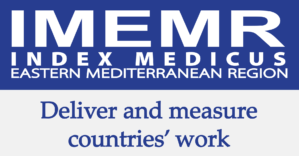Noncompliance to Treatment and Its Associated Factors among Patients with Diabetes Mellitus in Karachi
DOI:
https://doi.org/10.53685/jshmdc.v4i2.189Keywords:
Noncompliance, Diabetes mellitus, Patients with type 2 diabetes, Primary careAbstract
Background: Noncompliance to treatment is a widespread problem globally, particularly among people with chronic conditions like diabetes mellitus.
Objective: We aimed to assess the frequency of treatment noncompliance and its associated factors among patients with type 2 diabetes.
Methods: The study was conducted at the family medicine outpatient clinics at the Aga Khan Hospital during one month from 1st to 30th December, 2019. Using a cross-sectional design, we recruited 151 patients with type 2 diabetes who willingly agreed to participate in the research. We employed a pre-approved, self-administered, and structured questionnaire to gather data on demographics, clinical features, and treatment compliance among patients.
Results: There were 77 female and 74 male participants. The average age of the participants was 54.7±11.5 years. Among the 151 individuals in the study, 112 were noncompliant with their prescribed treatment. There was a significant association between treatment non-compliance and lower monthly income (p=0.039), participant’s age (p=0.020), and duration of the disease exceeding 5 years (p<0.001). The group of patients with noncompliance also had a higher risk of diabetic foot (p = 0.002) and retinopathy (p = 0.009). When asked about their reasons for noncompliance, participants cited drug side effects (91%), forgetfulness to take medications (81%), and complexity of drug therapy (66%).
Conclusion: Our findings revealed a notable prevalence of noncompliance among participants, which was associated with an elevated risk of complications. The Older age and disease duration for longer than 5 years were factors associated the most with noncompliance. Such interventions could significantly reduce the likelihood of developing diabetes-related complications.
References
International Diabetes Federation. IDF Diabetes Atlas. Ninth ed. International Diabetes Federation; 2021. Available from: http://www. diabetesatlas.org
Saeedi P, Petersohn I, Salpea P, Malanda B, Karuranga S, Unwin N, et al. IDF Diabetes Atlas Committee. Global and regional diabetes prevalence estimates for 2019 and projections for 2030 and 2045: Results from the International Diabetes Federation Diabetes Atlas, 9th edition. Diabetes Res Clin Pract. 2019; 157:107843.doi:10.1016/j.diabres.2019. 107843. DOI: https://doi.org/10.1016/j.diabres.2019.107843
World Health Organization (WHO). Management of Diabetes Mellitus standards of care and clinical practice guidelines. Alwan AAS, editor. Alexandria; 1994: 1-7. Available at: https://applications.emro.who.int/dsaf/dsa509.pdf?ua=1.
World Health Organization. Adherence to long-term therapies: evidence for action. Geneva: World Health Organization. 2003. Available at: http://apps.who.int/medicinedocs/pdf/s4883e/s4883e.pdf
Brown MT, Bussell J, Dutta S, Davis K, Strong S, Mathew S. Medication adherence: Truth and consequences. Am J Med Sci. 2016; 351(4): 387-399. doi: 10.1016/j.amjms. 2016.01.010 DOI: https://doi.org/10.1016/j.amjms.2016.01.010
Huang J, Ding S, Xiong S, Liu Z. Medication adherence and associated factors in patients with type 2 diabetes: A Structural Equation Model. Front. Public Health. 2021; 9: 730845. doi:10.3389/fpubh. 2021.730845. DOI: https://doi.org/10.3389/fpubh.2021.730845
WHO. Global report on diabetes. World Health Organization (WHO), editor. Geneva, Switzerland:World Health Organization; 2016. Available at: http://www.who.int/about/licensing/
Abstracts from the 2017 Society of General Internal Medicine annual meeting. J Gen Intern Med. 2017; 32(Suppl2):783-808.doi:10.1007/s 11606-017-4028-8. DOI: https://doi.org/10.1007/s11606-017-4028-8
Barasa Masaba B, Mmusi-Phetoe RM. Determinants of non-adherence to treatment among patients with type 2 diabetes in Kenya: A Systematic Review.J Multidiscip Healthc. 2021; 13: 2069-2076.doi:10.2147/JMDH.S2701 37. DOI: https://doi.org/10.2147/JMDH.S270137
Shams N, Amjad S, Kumar N, Ahmed W, Saleem F. Drug non-adherence in type 2 diabetes mellitus; predictors and associations. J Ayub Med Coll Abbottabad. 2016; 28(2): 302-307.
Jehan AS, Roshan S, Hussain S, Maheen A, Mahmood J, Zada A. Prevalence and predictors of non-compliance with pharmacological treatment in diabetes: Non-compliance with pharmacological treatment in diabetes. Pak. J. Med. Health Sci. 2023; 4(10):111-115. doi:10.54393/pjhs.v4i10.1089 DOI: https://doi.org/10.54393/pjhs.v4i10.1089
Khunti K, Seidu S, Kunutsor S, Davies M. Association between adherence to pharmacotherapy and outcomes in type 2 diabetes: a meta-analysis. Diabetes Care 2017; 40(11):1588–1596. doi:10.2337/dc16-1925 DOI: https://doi.org/10.2337/dc16-1925
Mitiku Y, Belayneh A, Tegegne BA, Kebede B, Abebe D, Biyazin Y, et al. Prevalence of medication non-adherence and associated factors among diabetic patients in a tertiary hospital at Debre Markos, Northwest Ethiopia. Ethiop J Health Sci. 2022; 32(4):755-764.doi: 10. 4314/ejhs. v32i4.12. DOI: https://doi.org/10.4314/ejhs.v32i4.12
Misra A, Sattar N, Tandon N, Shrivastava U, Vikram NK, Khunti K., et al. Clinical management of type 2 diabetes in South Asia. Lancet Diabetes Endocrinol. 2018; 6(12): 979-991.doi:10.1016/S2213-8587 (18)30199-2.
Kasturia S, Ali MK, Narayan KMV, Tandon N, Shivashankar R, Garg V, et al. Diets for South Asians with diabetes: recommendations, adherence, and outcomes. Asia Pac J Clin Nutr. 2018; 27(4):823-831.doi:10.6133/apjcn.11201703
Ansari RM, Harris M, Hosseinzadeh H, Zwar N. Healthcare professionals' perspectives of patients' experiences of the self-management of type 2 diabetes in the rural areas of Pakistan: A Qualitative Analysis. Int J Environ Res Public Health. 2021; 18(18):9869.doi:10.3390/ijerph18 189869. DOI: https://doi.org/10.3390/ijerph18189869
Bukhsh A, Goh BH, Zimbudzi E, Lo C, Zoungas S, Chan KG. Type 2 diabetes patients' perspectives, experiences, and barriers toward diabetes-related self-care: A Qualitative Study From Pakistan. Front Endocrinol. 2020; 11: 534873. doi:10.3389/fendo.2020.53487 3. DOI: https://doi.org/10.3389/fendo.2020.534873
Atun J, Stokes A, Goehler A, Houinato D, Houehanou C. Diabetes diagnosis and care in sub-Saharan Africa: a pooled analysis of individual data from 12 countries. Lancet Diabetes Endocrinol. 2016; 67:89.doi:10.1016/ S2213-8587(16)30181-4.
Abdullah M, Mansour A. The prevalence and risk factors of type 2 diabetes mellitus (DMT2) in a semi-urban Saudi population. Int J Environ Res Public Heal. 2020; 17(7):1–8.doi:10.33 90/ijerph17010 007. DOI: https://doi.org/10.3390/ijerph17010007
Misra A, Sattar N, Tandon N, Shrivastava U, Vikram NK, Khunti K., et al. Clinical management of type 2 diabetes in South Asia. Lancet Diabetes Endocrinol. 2018; 6(12): 979-991. doi:10.1016/S2213-8587 (18) 30199-2. DOI: https://doi.org/10.1016/S2213-8587(18)30199-2
Qutubuddin M, Rahman RA, Ghafoor E, Riaz M, Khan R. Assessment of Factors Associated With Non-Compliance to Self-Management Practices in People With Type 2 Diabetes. Cureus. 2021; 13(10).
Downloads
Published
How to Cite
Issue
Section
License
Copyright (c) 2023 Sannia Perwaiz Iqbal, Rubia Farid, Ainan Arshad

This work is licensed under a Creative Commons Attribution-NonCommercial 4.0 International License.
You are free to:
- Share — copy and redistribute the material in any medium or format
- Adapt — remix, transform, and build upon the material
- The licensor cannot revoke these freedoms as long as you follow the license terms.
Under the following terms:
-
Attribution — You must give appropriate credit, provide a link to the license, and indicate if changes were made. You may do so in any reasonable manner, but not in any way that suggests the licensor endorses you or your use.
-
Non Commercial — You may not use the material for commercial purposes.
-
No additional restrictions — You may not apply legal terms or technological measures that legally restrict others from doing anything the license permits.





















